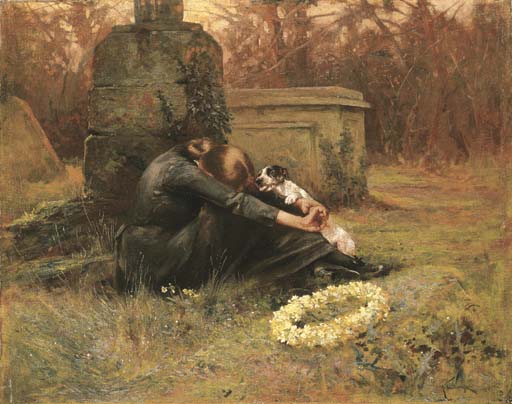I want to take a moment to talk about difficult conversations. Grief, death, illness and other life tragedies are some of the toughest subjects to broach with others and because of this, we often don’t.
In the past people generally avoided discussing these topics as taboo. There were elaborate social customs which allowed one to acknowledge a death or illness without ever actually speaking about it. Vising cards were made with black bands around them, as was stationary that you could use to announce a death or send a condolence note. Mourning clothes were worn by the bereaved, which let everyone know that one had suffered a loss.
But I’m going to encourage everyone to let these customs die. We need to talk about death, sickness, mental illness, divorce, depression and so on.
When I was in high school my father was diagnosed with brain cancer. He was given mere months to live. I was devastated, depressed and desperate for people to talk to, but found no one. It wasn’t just that high school students aren’t good at understanding and discussing death. No teacher, principal or school psychologist ever spoke with me. My mother had made a point of informing the school, yet not even the teachers with whom I had a good relationship with ever mentioned the fact that my father was at my house, dying. I know the corrosive loneliness that silence brings. The feeling that you are going mad with grief and everyone around you seem to be avoiding the topic. This was in the days before social media. I wonder if I had found a group of people online who could have been an outlet for all those feelings, would I have felt less lonely? I’m not sure that strangers could ever replace the living, breathing people you know.
I’m sure all of those people weren’t intending to be callous. I’m sure they just didn’t know what to say, but that is why it’s so important that we open those floodgates and just talk.
More often than usual these days one may run across people who’ve suffered a loss, who have been struggling with loneliness, depression or mental illness, so I’m going to give you a little unsolicited etiquette advice. Just say something compassionate, honest and brief. If you feel terrible for someone, say so. If you don’t know what to say, just say that. One of the best things I heard from someone when they learned that my mother was suffering from dementia was: “I don’t know what to say, but I hope you’re all right.” It was honest and real and I felt seen. If you are emotionally capable of listening, offer an ear. But don’t feel bad if you can’t, no one expects you to be a therapist. No one is perfect, you needn’t have the exact right words, just speak from your heart.
Most importantly, if someone doesn’t want to talk about their loss, move on. Don’t press or tell anyone to alter the way they feel.
If you are genuinely worried that someone is suffering from catastrophic grief or experiencing a mental break, speak with someone very close to them, such as a family member. If there is no one like that, speak with a professional. This is what hotlines were created for. They will be able to assess the situation clearly and will have the resources to help.
If you are suffering a depression or struggling with mental illness, please know, you are not alone. Things can get better. I encourage you to seek help. Never be ashamed to ask for help, you have nothing to be ashamed for.
For the Suicide and Crisis Hotline in the USA dial 988
For the Crisis Text Line, text Hello to 741741
If you are between 11 and 21 and want to speak with someone closer to your own age, call 1 877.968.8491 or text teen2teen to 839863
LGBTQ+ teens can call The Trevor Project at 866.488.7386 or text START to 678678
If you are transgender and want to speak with someone in the trans community call Trans Lifeline at 877.565.8860
I genuinely hope you’re all doing well and I’m sending you much love, Cheri



